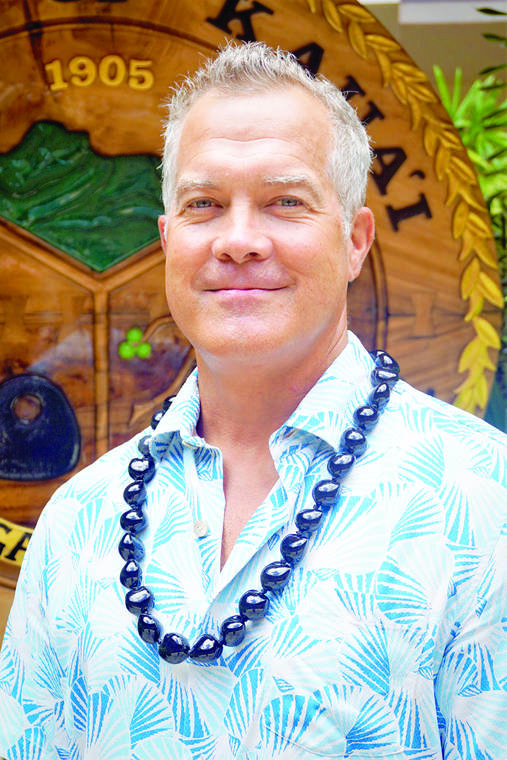LIHU‘E — The County Council’s Housing and Intergovernmental Relations Committee continues to debate and weigh the costs and benefits of a housing bill that will hopefully spur contstruction of affordable housing on the island for the “gap group.”
That group includes those who make too much money to qualify for subsidized housing but not enough to afford to buy a home at current market prices.
The focus of Bill 2274 is to provide housing opportunities for residents who earn between 80% to 120% of the area’s median income as recommended in the county’s Workforce Housing Nexus and Financial Feasibility Analysis that was completed in June 2019.
The gap group looks like a one-person household earning from $49,350 to $73,100 annually, maxing out at $83,550 for a two-person household, according to the analysis. There are area- and density-based exemptions in conjunction with island plans and zoning regulations.
“The whole focus of this policy is to try to incentivize and create that gap-group housing,” County Housing Agency Director Adam Roversi said. “So low-income members of our community are addressed by projects and developments.”
The committee met on April 8 to discuss amendments to the bill. In 2018, a bill that proposed to preserve housing designated for low-income families at prices below the normal market value did not pass.
Council Chair Arryl Kaneshiro summarized the issue as trying to understand the needs of developers and residents.
“It’s a push and pull and trying to incentive any affordable housing,” Kaneshiro said. “You want to be able to incentivize them to build some, but completely take a licking on building the development. It’s a hard balance, and I think that is what we’re going through in a lot of meetings when we’re meeting with people. We’re still trying to figure out that balance.”
Council Vice Chair Ross Kagawa shared that he’s already hearing negative reviews of the housing bill.
“I’m hearing that this is a terrible bill (and) that (if) it works, it’s going to work backward and do more damage than good,” Kagawa said. “I don’t like hearing those kinds of comments.”
He suggested that including more stakeholders in the beginning stages would lead to better results. He expressed his desire to have long-time contractors in these meetings.
Roversi said invitations had been sent out, but that only one retired contractor and the Kaua‘i Board of Realtors accepted.
“I think there are multiple perspectives on this bill,” Roversi said. “I think, broadly speaking, that the development community would like no such thing as a housing policy and inclusionary zoning, and would like it to go away.
Roversi continued that it’s been shown nationally that inclusive zoning can spur the development of affordable housing.
“I think we have an agreement to disagree over some of the policy implications of some of the points in this bill,” he said.
Councilmember and committee Chair KipuKai Kuali‘i said he’d be happy to work with contractors, and assured Kagawa the committee was not rushing on any decision.
“In fact, that is why we’re working on this slowly in committee, and adding amendments,” he said. “But, in the end, this entire bill is a package of amendments, and it won’t come out of committee until it’s ready and done. And that may take even a couple more months.”
The committee deferred more talks to the first committee meeting in May.
•••
Sabrina Bodon, public safety and government reporter, can be reached at 245-0441 or sbodon@thegardenisland.com.



